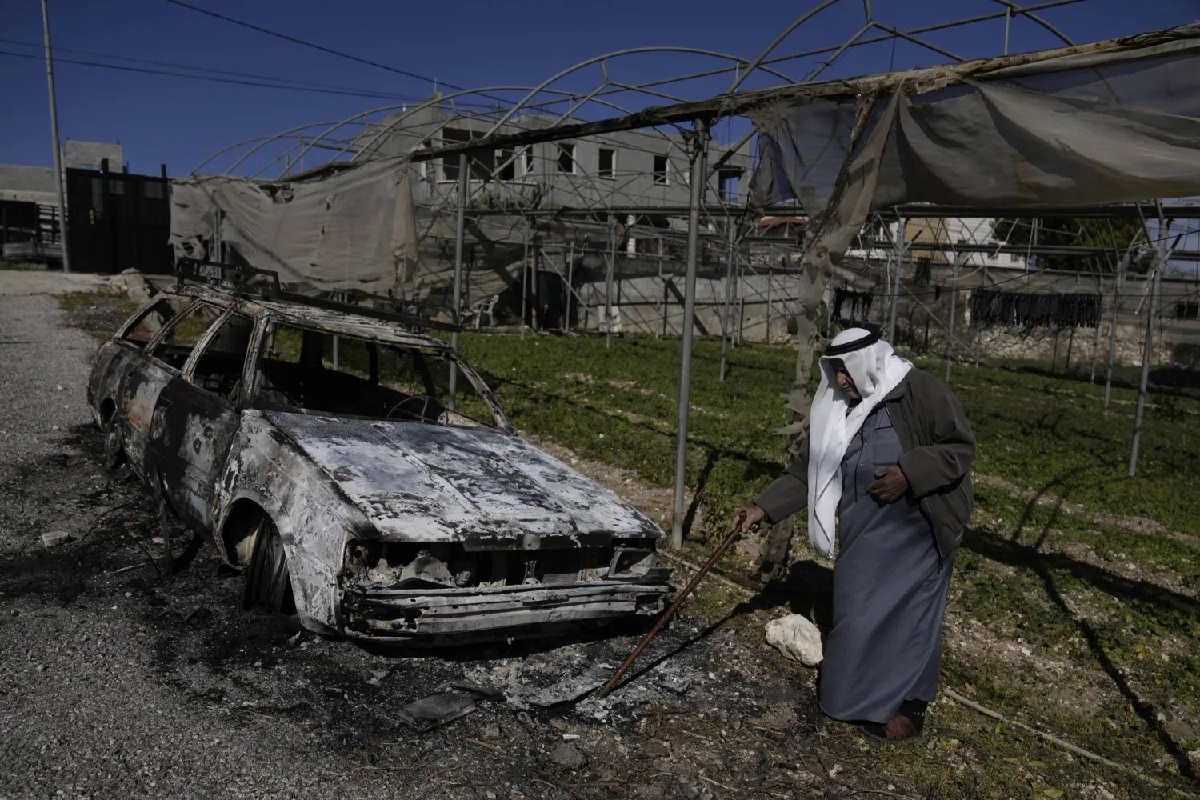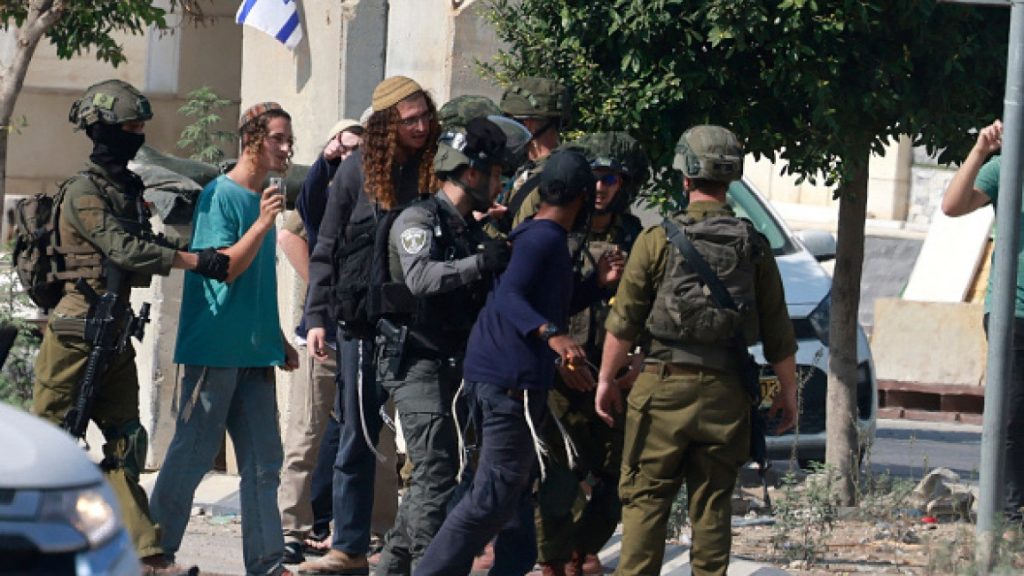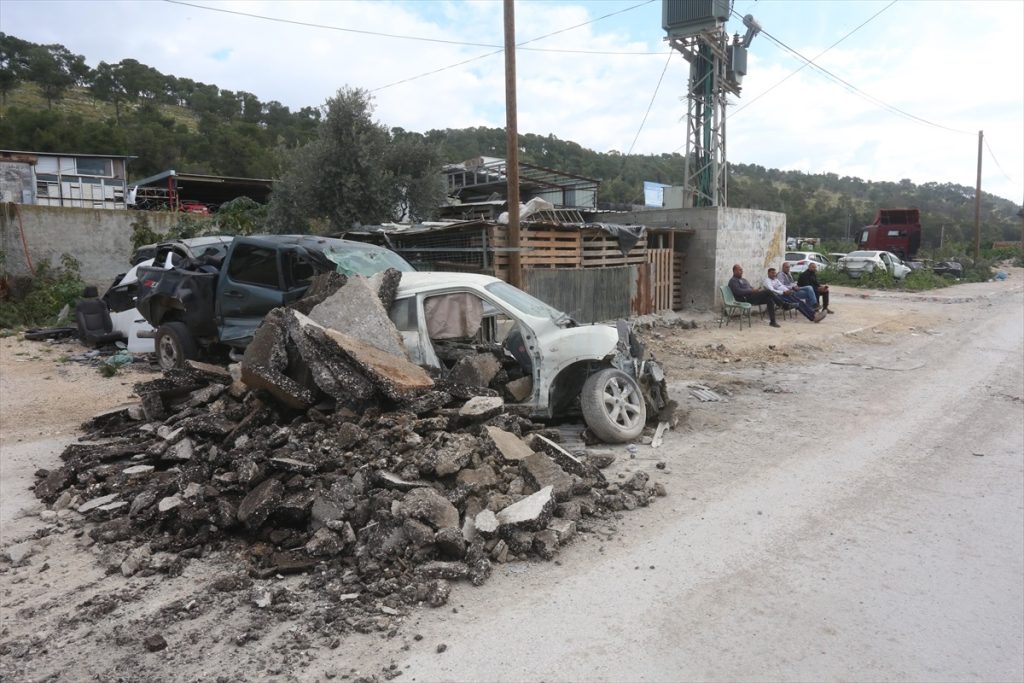Fueling Violence: Palestinian Outrage as U.S. Lifts Sanctions on Israeli Settlers
Palestinian officials warn that the U.S. move emboldens settlers and fuels violence, further destabilizing the West Bank.

Watan-The Palestinian Authority expressed its anger on Tuesday over U.S. President Donald Trump’s decision to lift sanctions on extremist Israeli settlers, condemning a move that is expected to escalate violence in the West Bank and facilitate the annexation of these territories to Israel.
Among a series of executive orders signed by the newly inaugurated U.S. president, one decree revoked sanctions imposed by his predecessor Joe Biden on settlers accused of committing violence against Palestinians.
Even before the decision was officially announced, Israeli settlers attacked the villages of Fundaq and Jinsafut in the northern West Bank on Monday evening, which has been occupied since 1967.
According to a statement by the Palestinian Ministry of Foreign Affairs, about 50 “masked terrorist settlers” burned cars, homes, and shops, injuring 21 people. The ministry accused the Israeli army and political leadership of “overseeing” these acts.
The Israeli army confirmed that “riots” took place near Fundaq and claimed they dispersed the incidents, stating that “Israeli civilians threw stones and attacked security forces.” Major General Avi Bluth, the commander of the Central Military Zone overseeing the West Bank, pledged that “the Israeli armed forces will not allow this.”
The Palestinian Ministry of Foreign Affairs said lifting the sanctions “encourages further crimes against our people.”

“Paralysis” of Movement
The ministry warned of “attempts to escalate the situation in the West Bank” to create “violent chaos that facilitates the annexation” of these territories. The far-right in Israel has been demanding the annexation of the West Bank.
The Palestinian Authority also condemned the increasing number of military checkpoints across the occupied West Bank, which it said hindered movement between provinces, cities, and villages. The number of checkpoints has reached about 900, including 16 recently established ones.
According to the Palestinian Ministry of Foreign Affairs, these measures “fragment the West Bank, isolate areas, paralyze movement, and leave thousands of Palestinian families stranded for hours at these oppressive checkpoints.”
In Israel, the far-right welcomed Donald Trump’s decree. Finance Minister Bezalel Smotrich, himself a settler, addressed Trump, saying: “Your unwavering support […] is a testament to your strong bond with the Jewish people and our historical right to our land.” He claimed the sanctions constituted “a grave and blatant interference in Israel’s internal affairs.”
Trump’s decision effectively annulled the executive order issued by Joe Biden in February 2024, which imposed financial sanctions on several settlers. Among those targeted was an individual accused of inciting violence in the town of Huwara, south of Nablus, where a Palestinian civilian was killed.
“Righting a Wrong”
At the time, Washington condemned the violence as “intolerable,” calling it a “serious threat to peace, security, and stability.”
Far-right politician Itamar Ben-Gvir also welcomed Trump’s decision. Ben-Gvir resigned from his position as National Security Minister on Sunday in protest against a ceasefire agreement with Hamas in Gaza following a devastating war that lasted more than 15 months.
Ben-Gvir described the decision as “righting a long-standing wrong,” criticizing those who “confuse friends with enemies.”
Violence linked to the Israeli-Palestinian conflict in the West Bank has intensified since the war between Israel and Hamas in Gaza began in October 2023.

A Palestinian man stands beside a burned truck following an attack by Israeli settlers in the West Bank (AP).
Israeli Prime Minister Benjamin Netanyahu has faced significant challenges in convincing his far-right allies to agree to the ceasefire with Hamas, which came into effect on Sunday. Ben-Gvir resigned from the government in protest against the truce.
The first phase of the six-week truce includes the release of 33 Israeli hostages held in Gaza in exchange for approximately 1,900 Palestinian detainees in Israeli prisons.
Smotrich threatened to withdraw from the government coalition if the war is not resumed after the first phase of the truce.
If Smotrich leaves the coalition, following Ben-Gvir’s departure, Netanyahu’s government would be on the brink of collapse.
On Tuesday, Palestinian Minister of the Wall and Settlement Resistance, Moayad Shaaban, stated that Trump’s decision “is the price Smotrich secured in exchange for agreeing to the Gaza ceasefire.” He warned that this decision “gives settlers the green light to commit more serious crimes” and expressed fears of a “real massacre in one of our villages.”
Following the U.S. decision, Israeli forces launched a large-scale military operation in Jenin in the West Bank “to thwart terrorist activities,” resulting in the deaths of six Palestinians so far.






